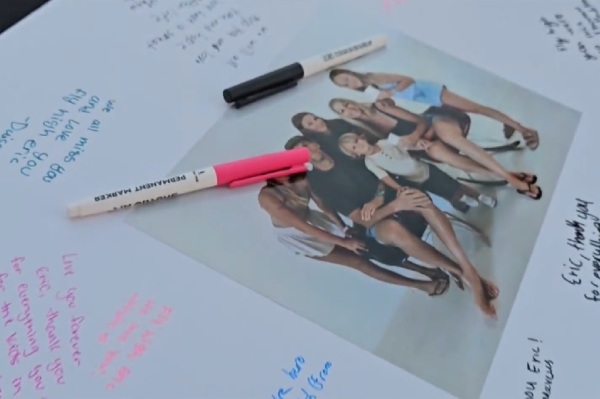The delusion that doomed CNN+

The Wall Street Journal and other news outlets reported on April 21st that CNN Chairman and Chief Executive Chris Licht put a bullet in CNN+, the company’s premium pay-for streaming service, less than a month after it launched on March 29. CNN lost the $300 million it invested in CNN+ and correctly realized the meager subscriber base it had attracted, at $5.99/month, would not be able to sustain the operation.
A rapid business nosedive of that magnitude is rare these days, but you get a glimpse of why it happened when you listen to a statement made by CNN’s CEO about the event: “We have to own what happened, even though it’s not a result of what we did.”
Come again?
One way to fail at business
My career has been one of helping build and make software companies successful. My first ten years were spent as a database engineer, but then I developed and sold my own database monitoring software to my first company and was blessed to, among other things, go on from there and lead the product teams at three of the most popular database companies in the world.
All that to say I know a thing or two about developing successful products. Plus, I’ve made some mistakes along the way that have taught me pitfalls to avoid.
When I first heard the announcement for CNN+, I couldn’t believe my ears.
Since the Trump presidency and COVID, CNN has worked overtime at producing polarizing, biased, and obnoxious broadcasts that greatly narrowed its audience and market appeal. During COVID, in particular, CNN took up the cause of being the nation’s tattletale, reporting on anyone who dared resist the constantly-changing mandates from the company’s christened authorities. Violators would receive a public flogging followed up with the famous Silence of the Lambs threat of, “…or else it gets the hose again.”
Such constant beratement and finger-wagging produced what some commentators call the “exhausted majority” – large segments of society fed up with being parented by media outlets in general, whether they’re left or right-leaning in nature.
So, how could a highly opinionated and ideological out-of-touch news organization that has seen the viewership of its general cable service drop by 80-90% over the past couple of years believe people would pay extra for their “premium” service?
Although I don’t have the inside scoop, given my career experience, I suspect one thing: confirmation bias.
Confirmation bias is deadly in business. It’s the psychological tendency in us all to search for, translate, and then ultimately favor information in a manner that supports our a priori and desired beliefs.
I’ve been guilty of confirmation bias myself. You either drink too much of your own Kool-Aid or want so badly for something to be true that you avoid any data that might challenge your reasons for moving in the direction you want.
When it comes to CNN+, it’s not hard to believe that a company that subjected our nation to a hysterical three-year loop of bungled Russia “collusion” stories would follow the same pattern of not impartially checking the facts on whether the market actually wanted to pay for even more from them.
Confirmation bias in matters of faith
Truth be told, CNN is far from being unique – anyone can be a victim of confirmation bias. Maybe it’s due to laziness or fear, but all of us are naturals at avoiding data that contradicts our beliefs.
One area of our lives particularly vulnerable to it is the domain of religion and faith. We think we know our particular faith well, but in reality, we’ll never understand it completely unless we consider the challenges sent against it.
English economist and philosopher John Stuart Mill said, “He who knows only his own side of the case, knows little of that,” meaning the position held is not a well-rounded and deep one if we don’t know the real ins and outs of the other side. I got a good example of this during my second at seminary.
My philosophy professor was Dr. Norm Geisler who many argue was one of the sharpest Christian minds of our day. He gave each of us a gigantic binder of anti-Christian essays from history’s top atheist and skeptical thinkers to read through, which at the time I thought was odd.
Geisler’s “devotional time” each day was spent reading not Christian works but atheist writings. He believed that unbelievers can keep Christians honest in our positions and thought some of them proved a few of our arguments did indeed deserve to be dropkicked into a dumpster and hauled away.
But Geisler was also a lion when it came to defending Christianity, in part, because he found claims against our foundational Christian truths to be vaporous and highly unconvincing. He’s right.
It sounds funny to say that one of my most faith-enriching experiences was plowing through a seemingly unending mountain of hostile anti-Christian writings, but it actually was. After working my way through the ancient skeptics up to present-day unbelievers and turning the last page, my concluding thought was, “Is that really the best they have?”
I was reminded of this the other day after listening to William Lane Craig defend his work on the cosmological argument against a recent video put up by his detractors. After addressing their key talking points, Craig said in an exasperated tone, “This is supposed to be a better and more reasonable explanation than theism?”
In the end, the most reliable cure for confirmation bias – and the way to evade disasters like CNN+ in business as well as avoid being duped in matters that are more important like religion and faith – is to interact with those who believe differently than you and pursue truth vs. what you want the truth to be.
Of course, the prerequisite for doing so is to do your own homework and be solidly grounded in your own belief so you are not, “tossed here and there by waves and carried about by every wind of doctrine, by the trickery of men, by craftiness in deceitful scheming” (Eph. 4:14). Not grounding yourself well can lead to doubt (vs. critical thinking), which is never commended in Scripture.
But when you’ve done that, taking the next step and understanding your opposition better allows you to be more informed and thus reach your full potential as Paul encourages: Brethren, do not be children in your thinking; yet in evil be infants, but in your thinking be mature” (1 Cor. 14:20).
Robin Schumacher is an accomplished software executive and Christian apologist who has written many articles, authored and contributed to several Christian books, appeared on nationally syndicated radio programs, and presented at apologetic events. He holds a BS in Business, Master's in Christian apologetics and a Ph.D. in New Testament. His latest book is, A Confident Faith: Winning people to Christ with the apologetics of the Apostle Paul.





















